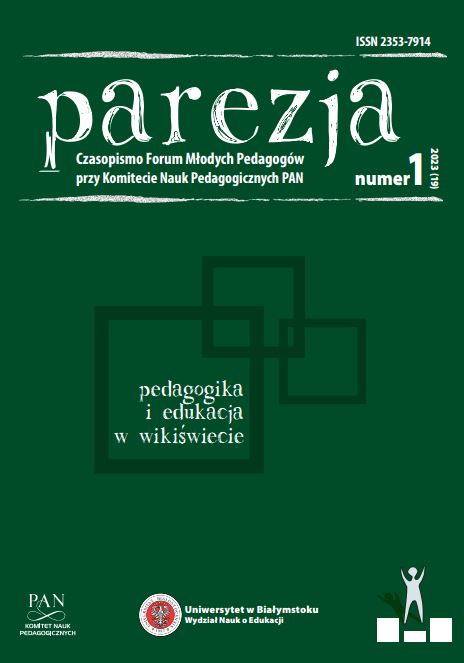Wykorzystywanie emoji i emotikonów przez nauczycieli
– jako łącznik ze światem uczniowskim (?)
The Use of Emojis and Emoticons by Teacher
Author(s): Justyna Miko-GiedykSubject(s): Theory of Communication, School education, Sociology of Education, Pedagogy
Published by: Wydawnictwo Uniwersytetu w Białymstoku
Keywords: use of emojis and emoticons; teachers; students;
Summary/Abstract: The article concerns the use of emojis and emoticons by teachers in the classroom and was written to draw attention to the educational use of these signs and symbols and to encourage wider possibilities of using them in education. In the first part of the text, considerations will be presented on the importance of emojis and emoticons in modern communication and the origins of the appearance of these characters in our society.In the second part, the results of a research survey conducted among teachersand students at Kielce schools and their parents in 2022 will be presented. An elementof the research reconnaissance was also the analysis of websites devoted to emojis andemoticons used in the school classroom.In the last part of the article, conclusions will be presented that teachers mostoften use emojis and emoticons for educational tasks, as an element of assessment, asan “addition” to the assessment, as a separate assessment and a reward for complet-ing the task and or a motivational element. Emojis and emoticons are mainly used inearly childhood education, as they are positively received by younger students. Olderstudents reserve these symbols rather for their peers, gradually distance themselvesfrom the older generation (to which the teachers belong) and mock attempts by teach-ers to introduce these elements in the older classes. Parents mostly understand theuse of these signs by teachers in the classroom. However, there are those who criticize the possibility of their use in schools.
Journal: Parezja. Forum Młodych Pedagogów Przy Komitecie Nauk Pedagogicznych PAN
- Issue Year: 19/2023
- Issue No: 1
- Page Range: 79-93
- Page Count: 15
- Language: Polish

